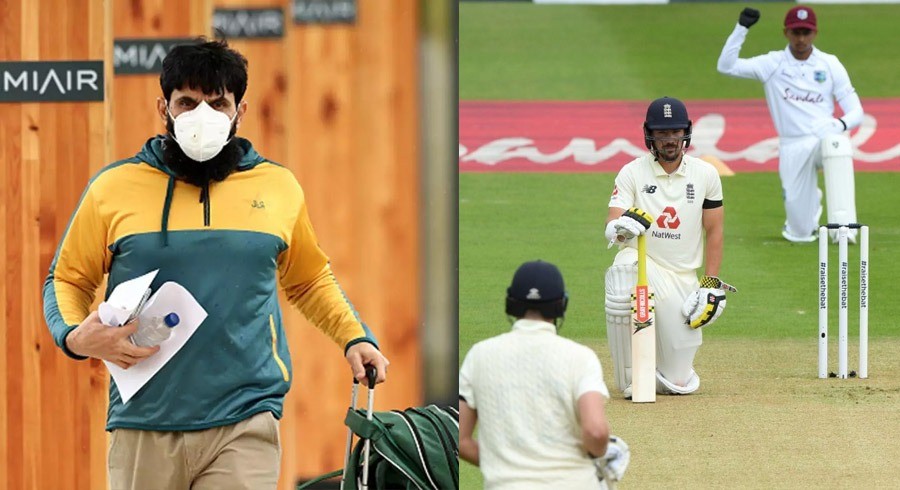Living in isolation and playing behind closed doors provided the game with a template to continue in extraordinary circumstances
 PHOTO: Reuters
PHOTO: Reuters
Cricket lost a chunk of the year’s fixtures, including a World Cup which had to be postponed, and players were banished to a life in “luxury prisons” when the game staggered back onto its feet still bearing the scars of the Covid-19 pandemic.
The sweet sound of bat meeting ball fell silent in March when New Zealand were renewing their trans-Tasman rivalry in Australia and the Pakistan Super League Twenty20 competition was nearing its business end.
The novel coronavirus outbreak forced players indoors, leaving several cricket boards, including some of the more affluent ones, in the red.
Half a dozen test series could not be played, creating a calendar logjam and forcing a change to how the finalists for next year’s World Test Championship (WTC) would be determined.
The women’s Twenty20 World Cup, which Meg Lanning’s Australia clinched on March 8 before a record 86,000-plus crowd at the Melbourne Cricket Ground, had a narrow escape but the men’s tournament was not so lucky.
Even as the pandemic raged on, the governing International Cricket Council (ICC) waited until July before postponing the Australia edition of the tournament to 2022.
While the game endured a rare four-month lull, boards introduced cost-cutting measures to deal with the pandemic’s financial aftermath.
Several boards, including Cricket Australia, furloughed the lion’s share of their workforce, while the England and Wales Cricket Board narrowly escaped what its chief executive Tom Harrison later described as “financial oblivion”.
The ECB postponed the inaugural edition of The Hundred competition, while their players, men and women, accepted pay cuts.
International cricket finally resumed after a 117-day hiatus when England hosted West Indies in a three-Test series in bio-secure venues at Southampton and Manchester in July.
This “new normal” of living in isolation and playing behind closed doors provided the game with a template to continue in extraordinary circumstances.
While the immediate reaction of the action-starved players was that of relief, the strain of bubble-life soon manifested itself.
BUBBLE FATIGUE
England all-rounder Tom Curran pulled out of the Big Bash League (BBL) in Australia citing bubble fatigue, days after compatriot Tom Banton withdrew from that Twenty20 tournament for the same reason.
“It can be quite tough,” South Africa speedster Kagiso Rabada said after experiencing bubble life in the Indian Premier League (IPL) in the United Arab Emirates.
“You can’t interact. You’ve basically lost your freedom. It’s almost like luxury prisons,” the 25-year-old said in a virtual news conference, another innovation forced by the pandemic.
India captain Virat Kohli said the toll that bubble-hopping takes on a player’s mind should be considered when determining the length of cricket tours.
“These things have to be seriously thought about,” said Kohli, who celebrated his 32nd birthday inside the IPL bubble.
The IPL, meanwhile, proved a resounding success despite being held in another country and outside its original window with a new title sponsor.
However, Covid-19 concerns earlier this month burst the biosecure bubble in South Africa, prompting England to return home after abandoning their ODI series.
Cricket also threw its weight behind the Black Lives Matter (BLM) movement, with several teams taking the knee.
The ICC, which elected New Zealander Greg Barclay as its new chairman in November, diluted its code of conduct to effectively approve such shows of solidarity for racial equality.
Australia began their summer of cricket with a ‘barefoot circle’ in Sydney in a powerful stand against racism and a recognition of indigenous Australians.
Meanwhile, Pakistan’s relentless campaign to convince top teams to shed their security apprehensions and tour the country bore fruit with England, New Zealand and South Africa committing to visit in 2021.